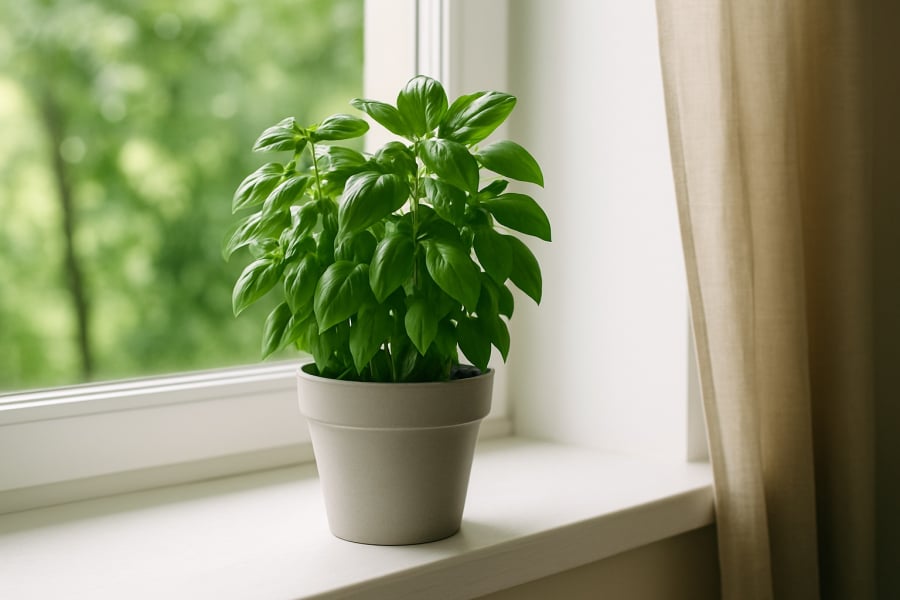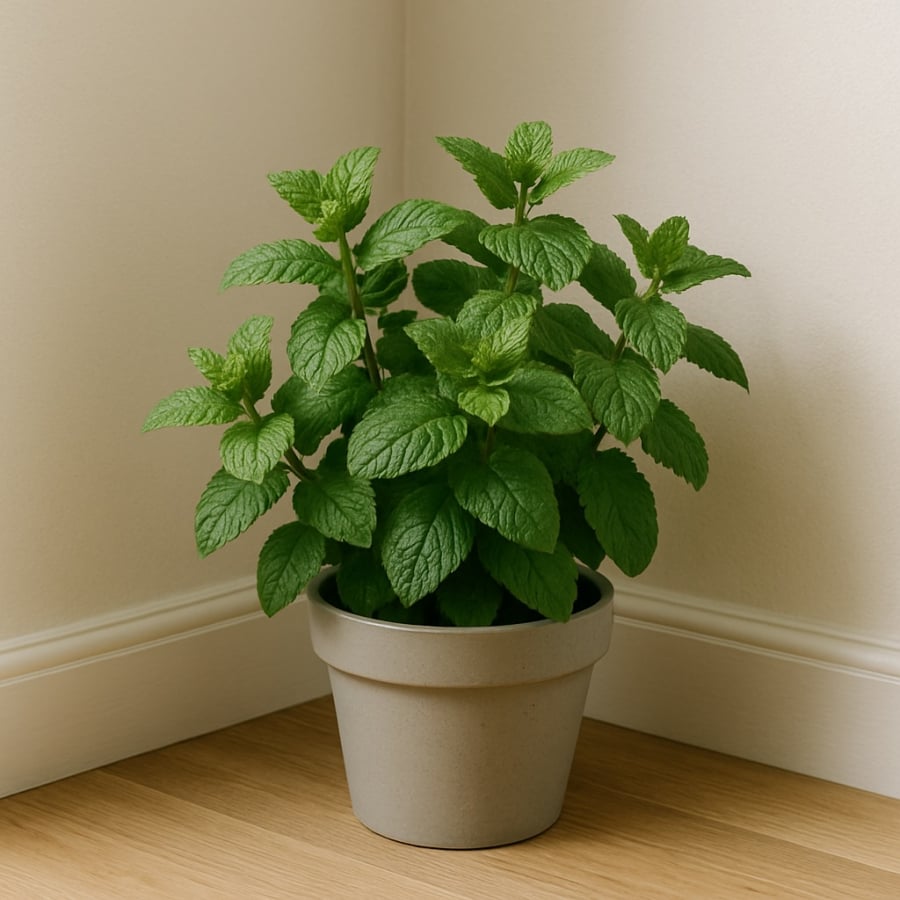## Why Are Plants Effective Air Purifiers?
How do plants clean the air we breathe?
Amidst the hustle and bustle of city life, many seek solace in greenery, a way to “breathe” life into their spirits. But did you know that plants are also nature’s silent “biological filters,” working tirelessly within your very own home?
According to BSCKII Huynh Tan Vu, a lecturer at Ho Chi Minh City University of Medicine and Pharmacy, plants possess the remarkable ability to absorb toxic gases and release oxygen through photosynthesis. Some plants even emit essential oils or biological compounds, creating a purifying effect by neutralizing odors and enhancing overall air quality, as Dr. Vu shared with VnExpress.
And there’s more: certain plants act as natural repellents to insects, thanks to their distinctive fragrances that disorient these pests, preventing them from finding harborage or a host.
Basil: A Versatile Herb, a Mosquito’s Nightmare
Place a small pot of basil by your window, and you’ve got yourself an effective mosquito-repelling “scent barrier.” Basil’s essential oils are known for their antibacterial properties, calming effects, and, most notably, their ability to keep insects at bay.
As Dr. Vu explains, crushing basil leaves releases a stronger scent, making it ideal for placement near doors, balconies, or kitchens to deter insects from entering your home. Basil is a versatile herb that not only enhances the flavor of your dishes but also purifies the air, making it a “2-in-1” choice for every household.

Lemongrass: A Small Plant with Big Benefits
Lemongrass is not just a culinary ingredient; it’s a “treasure” for both your health and living environment. Its essential oil, citronella, is a proven repellent against mosquitoes, aphids, whiteflies, and even air-borne fungi.
A study published in Vietnamnet revealed that inhaling lemongrass oil helps reduce stress, promotes better sleep, and eliminates bacteria from the surroundings. Plant a few lemongrass stalks in pots or near your kitchen, and you’ll soon notice a pleasant, subtle fragrance filling the air, along with a noticeable reduction in mosquito activity.
Mint: A Refreshing Scent with Powerful Insect-Repelling Properties
Mint’s invigorating aroma doesn’t just refresh your home; it also acts as a mild sedative, reducing stress and anxiety. Menthol, the primary compound in mint, is a known enemy of mosquitoes, flies, and ants.
“Simply crush a few mint leaves and place them in the corners of your home,” suggests Dr. Vu. “The mosquito-repelling effects will be noticeable within a few days.” Additionally, mint helps alleviate fatigue and soothes insect bites, making it especially beneficial for households with young children.

The Allium Family: Natural Disinfectants and Pest Repellents
Garlic, onions, and chives—staples in the Vietnamese kitchen—possess an unexpected talent for “air purification.” The essential oils derived from these plants are powerful disinfectants, capable of eliminating bacteria and viruses while deodorizing and purifying the air.
“The Allium family is nature’s pesticide,” asserts Dr. Huynh Tan Vu in an article for Dan Tri. “Planting garlic and onions near other vegetables helps prevent pest infestations without the need for chemicals.”
A few cloves of garlic or onions placed in the corners of your kitchen, balcony, or potted with ornamental plants are enough to harness their comprehensive air-purifying and protective effects.
A Garden of Protection
Combining these plants creates not only a beautiful green space but also offers countless health and feng shui benefits. Each plant acts as a unique “shield,” collectively fostering a peaceful and serene atmosphere—a rare luxury in today’s stressful modern life.
Imagine waking up on a weekend morning, stepping out onto your balcony, and inhaling the gentle scent of lemongrass while gazing at the lush basil plant swaying in the breeze. Isn’t that a precious gift for your well-being?
In Conclusion
Plants are no longer just decorative elements but trusted companions, safeguarding your health and mental well-being daily. Embrace the power of nature to transform your living space into a sanctuary of purity, safety, and charm.






























